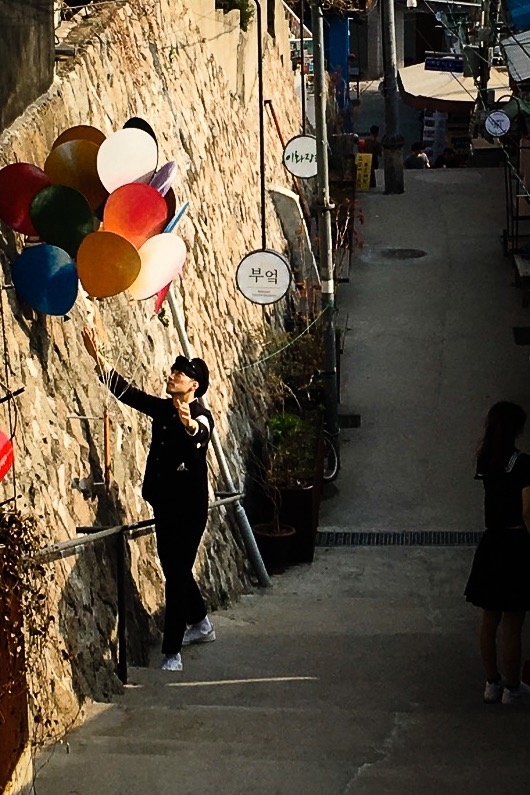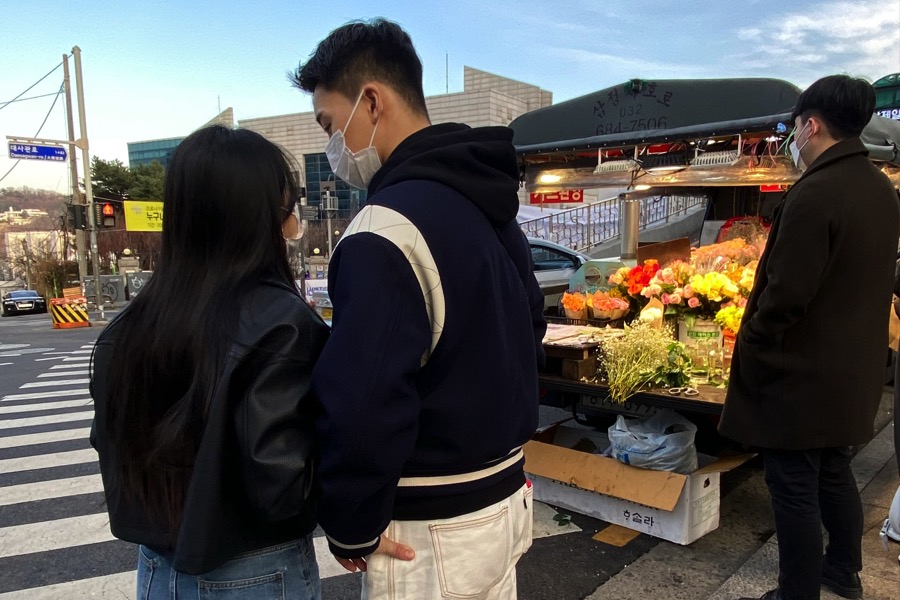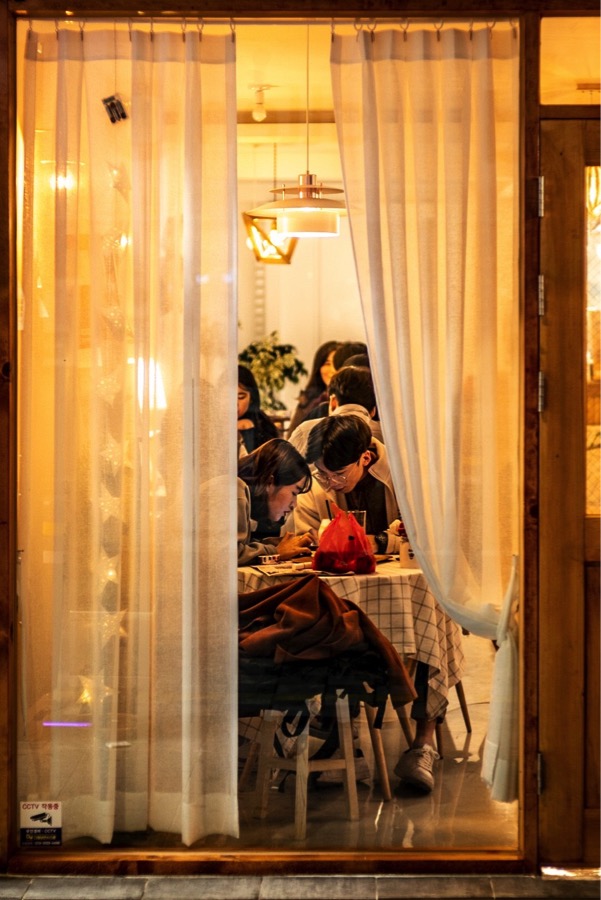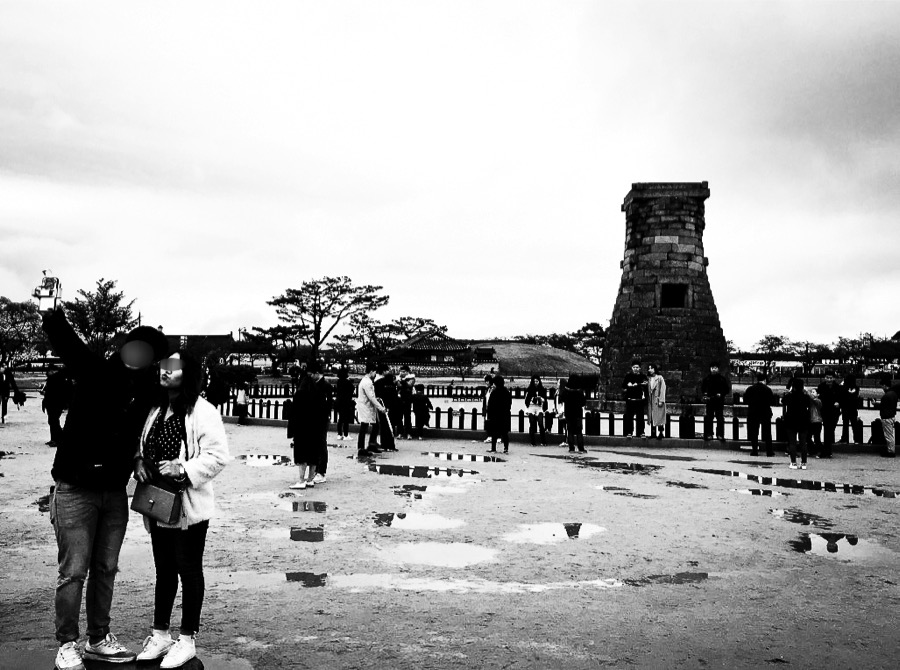SHARE
INFO
- DATE: 27-01-2021
- PLACE: Seoul
COUNTRY OF PROVENANCE

South Korea
RELATED ARTICLES

South Korean curiosities: appearance speaks
Normality and strangeness change along meridians and parallels and appearence speaks about customs and traditions of a Country. Here some South Korean curiosities.

The girl on the 22nd floor – Alessandra in South Korea
I’ve always lived on the second or third floor of low-rise buildings. From the twenty-second floor, what is far away is much sharper. Alessandra, South Korea

My Tips – Seoul, South Korea
Seoul is a city to live rather than visit. Choose carefully where to go during the day and in the evening. What to see – my Tips – Seoul, South Korea
Seon and sogaeting, or when the date is not fully blind
Alessandra from Seoul, South Korea
The concept of ‘couple look’, of which I have previously spoken, has attracted the attention and questions of many readers, as well as it has generated smiles (which is always good!). I, therefore, decided to describe in this post what precedes that milestone: the ‘dating‘. The word in English describes the phase preceding the decision to make a relationship exclusive; it includes courtship and reciprocal knowledge, which will not necessarily end up in a relationship. So far, nothing special – you might say: a series of appointments – ‘dates’ – and a totally natural selection process. However, it is not. In fact, in Korea ‘dating’ and, more particularly, ‘blind dating’ – seon or sogaeting – follows very specific rules and rituals, becoming in some cases even a business.
The origin of the process
Age. 30 years old are considered by older generations an expiration date. Indeed, anyone who reaches or is close to this age and still single is constantly asked from parents and relatives “Soooo? Don’t you think it’s time to find a partner/wife/husband?” Although typical also in Italy and in many Countries with a strong family-oriented mindset, in Korea this question is only the fuse that allows to ignite a well-structured process.

From ajoummas to matchamaking agencies: the facilitators
Indeed, it is absolutely normal and socially accepted for family members to introduce potential partners through their network of acquaintances or with the help of professional facilitators. Moreover, there are match making agencies to perform this function. Interestingly, in the past this was a task for ajoummas. In particular, I was told by many among my contacts about these women stationing in hospitals and looking for doctors without wedding ring to introduce to unmerried women of good families, obviously for a fee.
“This marriage is not to be performed” (Promessi Sposi, A. Manzoni)
In the seon, a marriage-oriented blind date, the third person plays a crucial role as they must identify the right match and meet the family’s expectations – generally very high. However, don’t get me wrong: this is not the typical process common to other cultures in which parents choose the future husband / wife and enter into an agreement with the future parents in-law regardless of the wishes of the children. Absolutely not. Actually, in Korea there is the belief that the fate must be helped, especially when it comes to the establisment of a new (ideal) family. The seon is therefore, in the Korean traditional perspective, a help. Furthermore, since at the base of the seon is the blessing from the parents – as well as the pressure – if the spark strikes, the marriage can also take place within one or two months and the facilitator can celebrate his/her success with the well-deserved compensation.
The perfect match
Right: the ideal partner for a seon comes from the same social and educational background, has a job – the best possible in the specific context – and would like to have children – essential for the future grandparents, although it does not find correspondance in the reality. Indeed, South Korea ranks first in the world for the lowest birthrate. But let me ask you this: is it so different from what the most conservative families in our Country wish for their children? Maybe not, but if in 2021 in Italy saying it loud causes some discomfort even for the most conservatives, in Korea it is not surprising. On the contrary, progressivism in these matters is. As it happens, “giving things time” or “single by choice” are not an option; in fact, older people associate being single with some lack of time due to a demanding job or shyness. All plausible things, but in my opinion not necessarily true. In any case, as additional help to overcome the obstacles, some universities launched lectures on “dating”.
In the hands of Cupid
Additionally, if you are surrounded by friends and colleagues who are married or in a stable relationship, here they are, ready to play the role of Cupid, hoping to bring the single friend to the other side of the fence. Specifically in this case, we speak of sogaeting (literally introduction + meeting), a less pressing process and, sometimes, so repeated that it can be considered a national sport. But how does it work? The initial step – and not only – is similar to a first business contact facilitated by a common acquitance. Generally, both people involved agree – out of interest or exhaustion – on their Cupid sharing their contacts. As a consequence, the most interested of the two, or in a more traditional way the man, makes the first move by sending a text with reference to the facilitator

The tech aid to break the ice
Shyness: characteristic of young Koreans. Culturally, people are not used to expose themselves by asking questions and mistakes might cause shame. Not only in romantic relationships, but in any social interaction, this aspect has deep origins in the Confucian culture, which is not discussed in this post. In reality, what I am interested to highlight is that, in such a cultural context, new technologies are a useful tool to break the ice. Indeed, the first exchanges in both seon and sogaetin take place in a chat until the decision is taken to finally meet. After all, isn’t it what nowadays happens in the widely used dating apps?
Café as a meeting place and observation point
Depending on the age and the budget, here we are in a restaurant – preferably foreign cuisine – or in a café. This latter is one of the favorite places for first dates: public, safe, casual. As soon as I arrived in Korea, I was surprised not only by the number of cafés, but by their concentration in the same street. Truly, I was wondering how did they survive. As a matter of fact, Koreans do not go to cafés for a quick break, but to study, work, meet and…date. As for me, it is very easy to recognize potential couples and fun to bet on which appointment number is or if another one will follow.

Intellectual or emotional?
Yes, body language does not lie. For instance, it seems to me that at the first date people tend to assume a stiff position, sitting at the end of the chair. However, during a blind date in Korea not only the body language recalls a job interview, but also the exchange of rather formal and ritual questions / answers. It is a crucial moment because based on the answers – perhaps less on the emotions – the decision is taken about whether the two will meet again. Notably, the first date in a seon brings along a series of important expectations, not only for the potential couple, but also for the whole entourage.

Next step: oppa
Furthermore, there are small bouquets of flowers for the first dates, which unfortunately for the men cost like jewels. And how to forget the photos during the following dates? Instagram has amplified this aspect by helping to identify the perfect and romantic spot – often connected to a Korean drama- not to be missed, the cafés and restaurants to absolutely visit, the movies that a couple in love should definitely watch. Blind, yes, but not fully. There are many criteria and rituals to be met before showing off the “couple look” and hearing the woman address to the man as “oppa“. What is it about? Well, you will have to wait for the next post!
Note: This post has the sole objective of telling about the seon and sogaetin = blind date as part of Korean culture. It does not mean that every couple comes from a seon or a sogaetin. These are just two tools along with the universal dating apps, which might help matching soulmates.
You can check out my pictures on flickr here.
